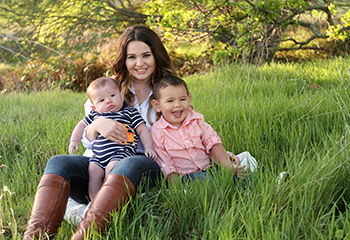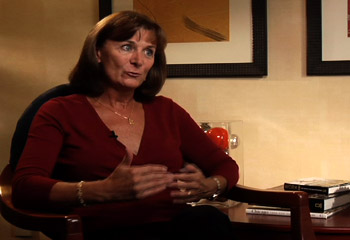A Look Back: Season 3
Over the past three years Facing Life Head-On has explored some pretty amazing stories about life. Brad has interviewed guests about their decision to adopt frozen embryos; he’s met with the parents of Terri Schiavo to learn about her legacy; talked with a woman who detailed her personal experience using the abortion drug RU-486; and visited with a family who lost their 22 year-old daughter after she chose to abort her baby. These are only a few of the stories Brad has covered.
This week he revisits Teresa Ippoliti’s story. Teresa survived a saline abortion in Korea. She was wrapped in newspaper and left on a shelf to die, but an attending nurse couldn’t deal with the thought of an infant gasping for breath all alone. She was rescued, adopted, and brought home to America. Today she is enrolled in college courses, volunteers in her community, and is looking forward to her career. When asked what she would say to her birthmother if the met, Teresa said, she’d tell her birthmother there was no way to know what her mother was going through at that time in her life, and it’s not her place to judge.
Remember Lila and James? They are the college duo that placed on undercover phone call to Planned Parenthoods across the nation. James was the caller, and would pose as a financial donor desiring to give money to be earmarked for aborting a black baby. Evidently this is “always, always” possible to do, especially at one Planned Parenthood in Iowa. Brad met with Lila and James to look into what motivated their phone call. Their reasoning is a bit shocking.
Imagine being a senior in high school. Graduation and college are on your mind—the world is exciting and new. One afternoon you go for a drive with friends, but you return paralyzed from the waist down. Doctors say you’ll never walk again—never. That was Jaki Rabon’s story. It was her story because today Jacki is walking with leg braces and a walker. With the help of her stem cells; taken from the top of her nose, between her eyes, and implanted into her spine where the major damage occurred. Slowly she gained feeling back in her hips and then her legs. Today Jacki is a walking example of the scientific potential for adult stem cells.
Spend a day with a child or a young adult with Down syndrome, and your world will never be the same. They have an unexplainable passion for people. Will, Mac, and April, each of whom is living with Down syndrome, are achieving life goals and positively impacting their communities. Down syndrome is the number one chromosomal disorder in America, with nearly 5,000 babies born each year with one extra chromosome. A recent report by Frank and Sue Buckley found Down syndrome births have increased by 25% in the last 15 years. The rate of inclusion into school and jobs is also on the rise, and with medical advances, children with Down syndrome are living longer and experiencing life on a new level.




